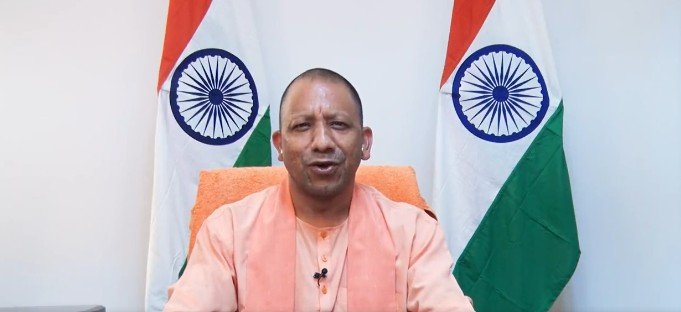July 18 – Uttar Pradesh Chief Minister Yogi Adityanath has strongly condemned what he called a “media trial” against Kanwar Yatra pilgrims, asserting that attempts to label them as “hooligans” and “terrorists” are part of a larger agenda to insult India’s ancient spiritual heritage. Speaking during a public event in Varanasi, Adityanath defended the Yatra as a symbol of inclusive devotion that transcends caste, class, and regional divides.
“The Kanwar Yatra is a living example of India’s cultural unity,” the CM said. “From the labor class to the elites, everyone walks together in devotion, chanting ‘Har Har Bam Bam’ over 300 kilometers. There is no discrimination—none of caste, class, region, religion, or ideology. Yet, some media sections attempt to demonize these devotees.”
Adityanath’s comments come in response to recent reports linking Kanwariyas to public disturbances. In Uttarakhand, four pilgrims were arrested for allegedly obstructing the Delhi-Haridwar highway and damaging property. In Muzaffarnagar, a roadside eatery was reportedly vandalized by a group of Kanwar Yatris, who accused the Muslim owners of concealing their identity. Authorities are also cracking down on loud motorcycle processions and unauthorized public disturbances.
While acknowledging these incidents, Adityanath urged the public and institutions to differentiate between isolated disruptions and the broader essence of the Kanwar movement. “It is unfair to malign an entire tradition based on a few incidents. Such a mindset not only insults the faith of millions but also weakens our national unity,” he emphasized.
He accused certain groups of leveraging social media to foment caste-based unrest. “The same people who have always attacked India’s faith are now trying to create fake social media accounts to provoke caste conflict. They want to break our social fabric,” Adityanath claimed, urging vigilance against such divisive tactics.
The CM linked these trends to broader efforts to destabilize India’s internal cohesion. “These are not just random attacks. There is a conspiracy—one that has, in the past, tried to alienate the tribal community, incite unrest, and wage psychological warfare against the nation. Now, these forces are targeting our cultural traditions,” he said.
Adityanath called on law enforcement and social institutions to play a proactive role in safeguarding harmony. “If we remain alert and responsible, our institutions can strengthen unity and guide the nation in a positive direction,” he noted.
The Kanwar Yatra, an annual pilgrimage during the month of Shravan, sees millions of Shiva devotees—often dressed in saffron—travel to collect holy water from the Ganges to offer at Shiva temples. The event, while deeply spiritual for many, has been under scrutiny in recent years due to concerns over traffic disruptions, noise pollution, and occasional clashes.
Despite these controversies, the Yatra continues to draw massive participation. Supporters argue that it reflects the resilience of India’s spiritual practices and the ability of diverse communities to unite under a common banner of faith.
Adityanath’s staunch defense of the pilgrimage underscores the political and cultural significance the Yatra holds in Uttar Pradesh and northern India. As the region braces for more processions in the coming days, the CM’s words aim to steer the public discourse away from conflict and back to cultural reverence.
In conclusion, while questions about law and order during the Kanwar Yatra remain valid, Adityanath’s remarks spotlight the tension between preserving public order and honoring religious traditions. As debates continue, the Kanwar Yatra remains at the crossroads of faith, politics, and modern governance.








